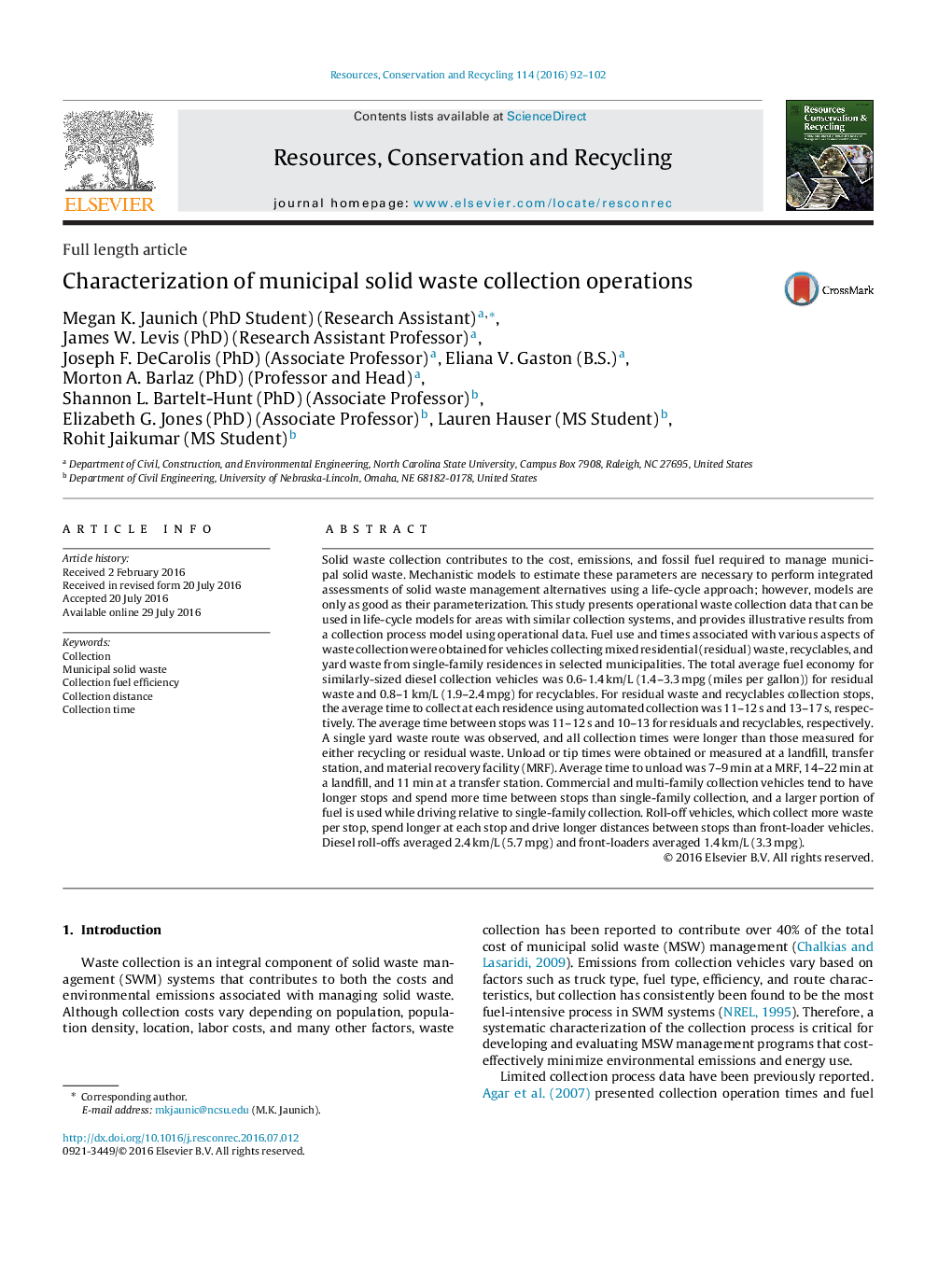| کد مقاله | کد نشریه | سال انتشار | مقاله انگلیسی | نسخه تمام متن |
|---|---|---|---|---|
| 1062665 | 1485677 | 2016 | 11 صفحه PDF | دانلود رایگان |
• We observed municipal solid waste collection activities in a local city.
• We analyzed collection activity data from five additional cities.
• We aggregated collection activity data for use in life-cycle assessment models.
Solid waste collection contributes to the cost, emissions, and fossil fuel required to manage municipal solid waste. Mechanistic models to estimate these parameters are necessary to perform integrated assessments of solid waste management alternatives using a life-cycle approach; however, models are only as good as their parameterization. This study presents operational waste collection data that can be used in life-cycle models for areas with similar collection systems, and provides illustrative results from a collection process model using operational data. Fuel use and times associated with various aspects of waste collection were obtained for vehicles collecting mixed residential (residual) waste, recyclables, and yard waste from single-family residences in selected municipalities. The total average fuel economy for similarly-sized diesel collection vehicles was 0.6-1.4 km/L (1.4–3.3 mpg (miles per gallon)) for residual waste and 0.8–1 km/L (1.9–2.4 mpg) for recyclables. For residual waste and recyclables collection stops, the average time to collect at each residence using automated collection was 11–12 s and 13–17 s, respectively. The average time between stops was 11–12 s and 10–13 for residuals and recyclables, respectively. A single yard waste route was observed, and all collection times were longer than those measured for either recycling or residual waste. Unload or tip times were obtained or measured at a landfill, transfer station, and material recovery facility (MRF). Average time to unload was 7–9 min at a MRF, 14–22 min at a landfill, and 11 min at a transfer station. Commercial and multi-family collection vehicles tend to have longer stops and spend more time between stops than single-family collection, and a larger portion of fuel is used while driving relative to single-family collection. Roll-off vehicles, which collect more waste per stop, spend longer at each stop and drive longer distances between stops than front-loader vehicles. Diesel roll-offs averaged 2.4 km/L (5.7 mpg) and front-loaders averaged 1.4 km/L (3.3 mpg).
Journal: Resources, Conservation and Recycling - Volume 114, November 2016, Pages 92–102
